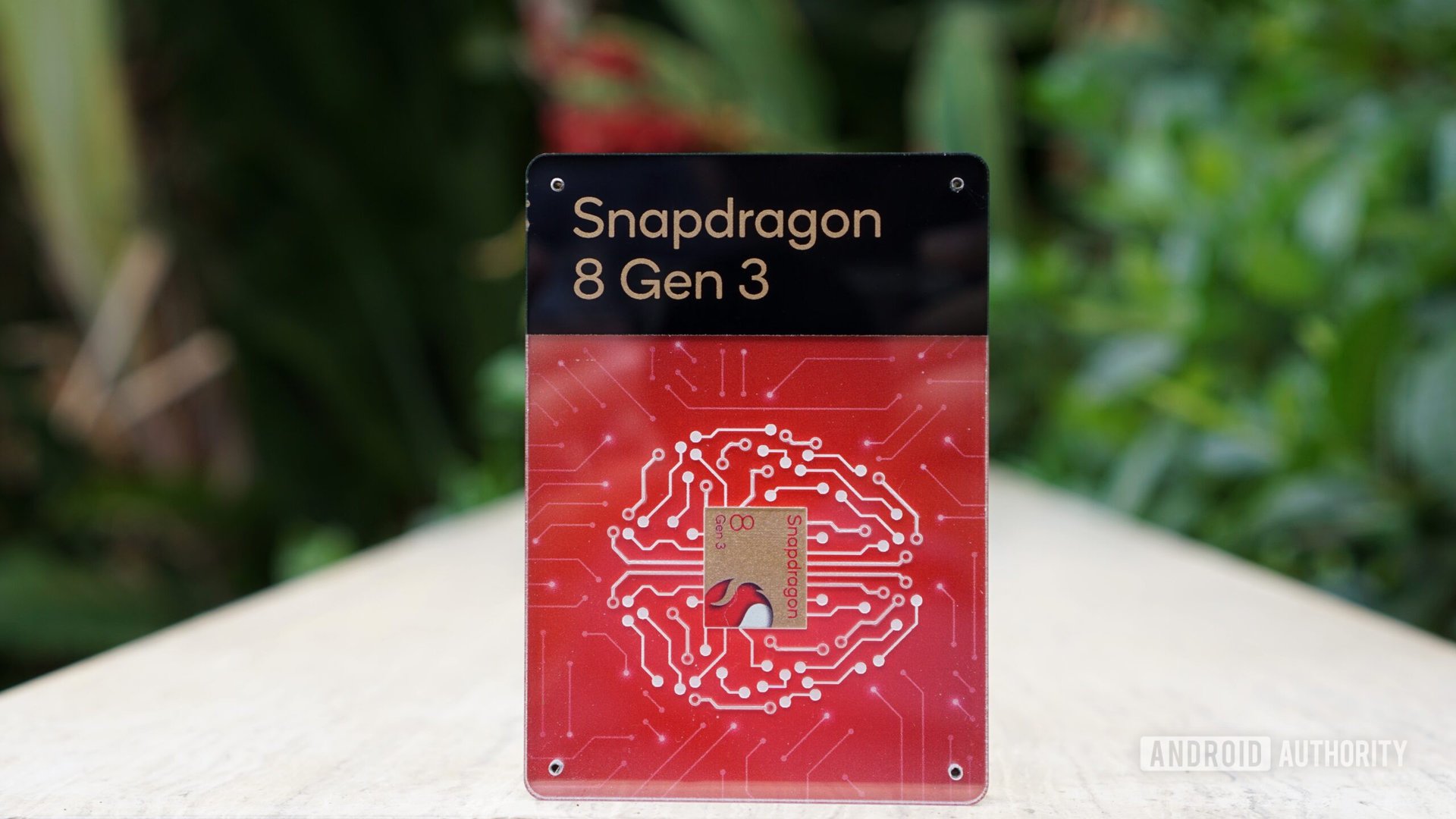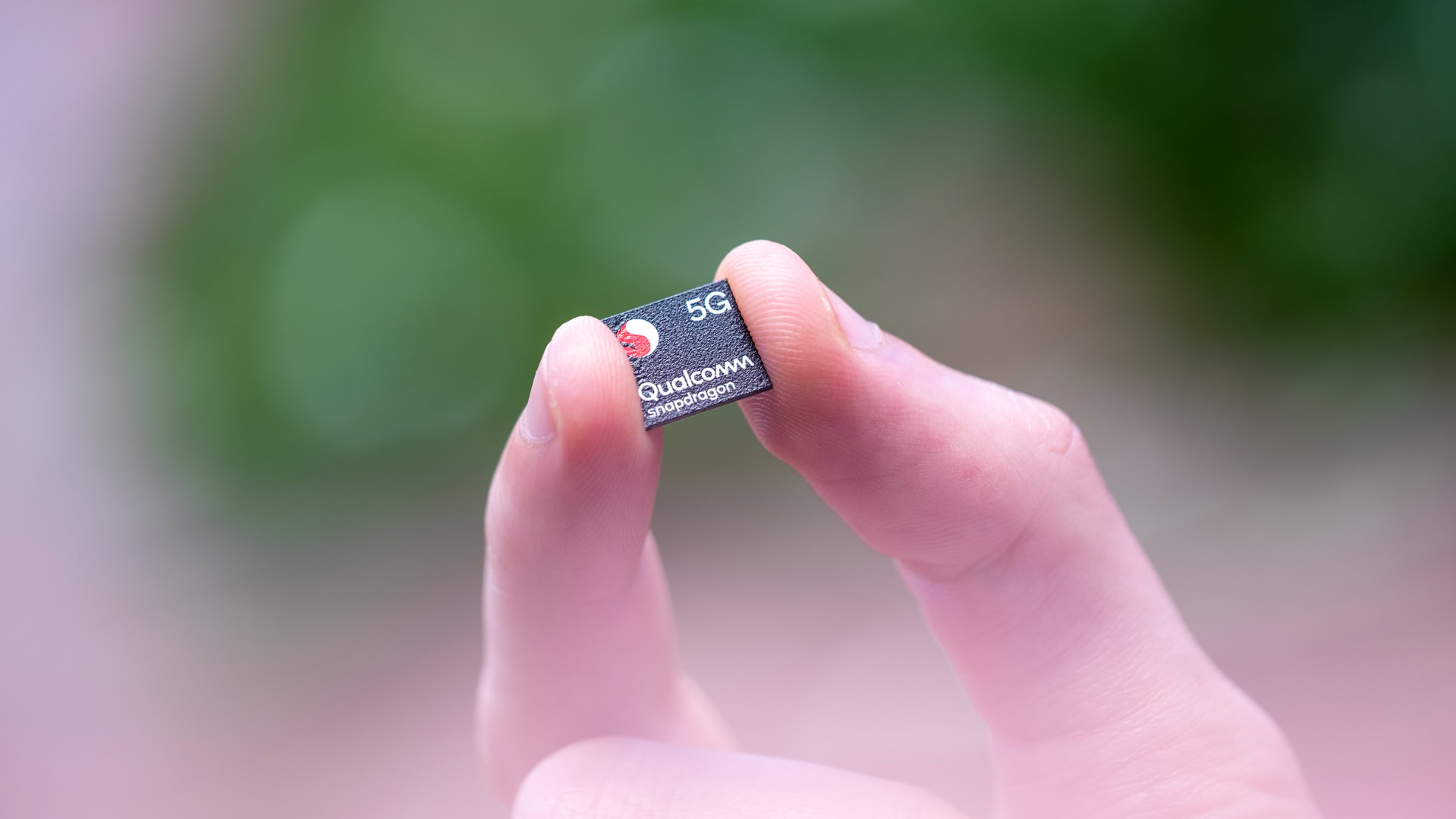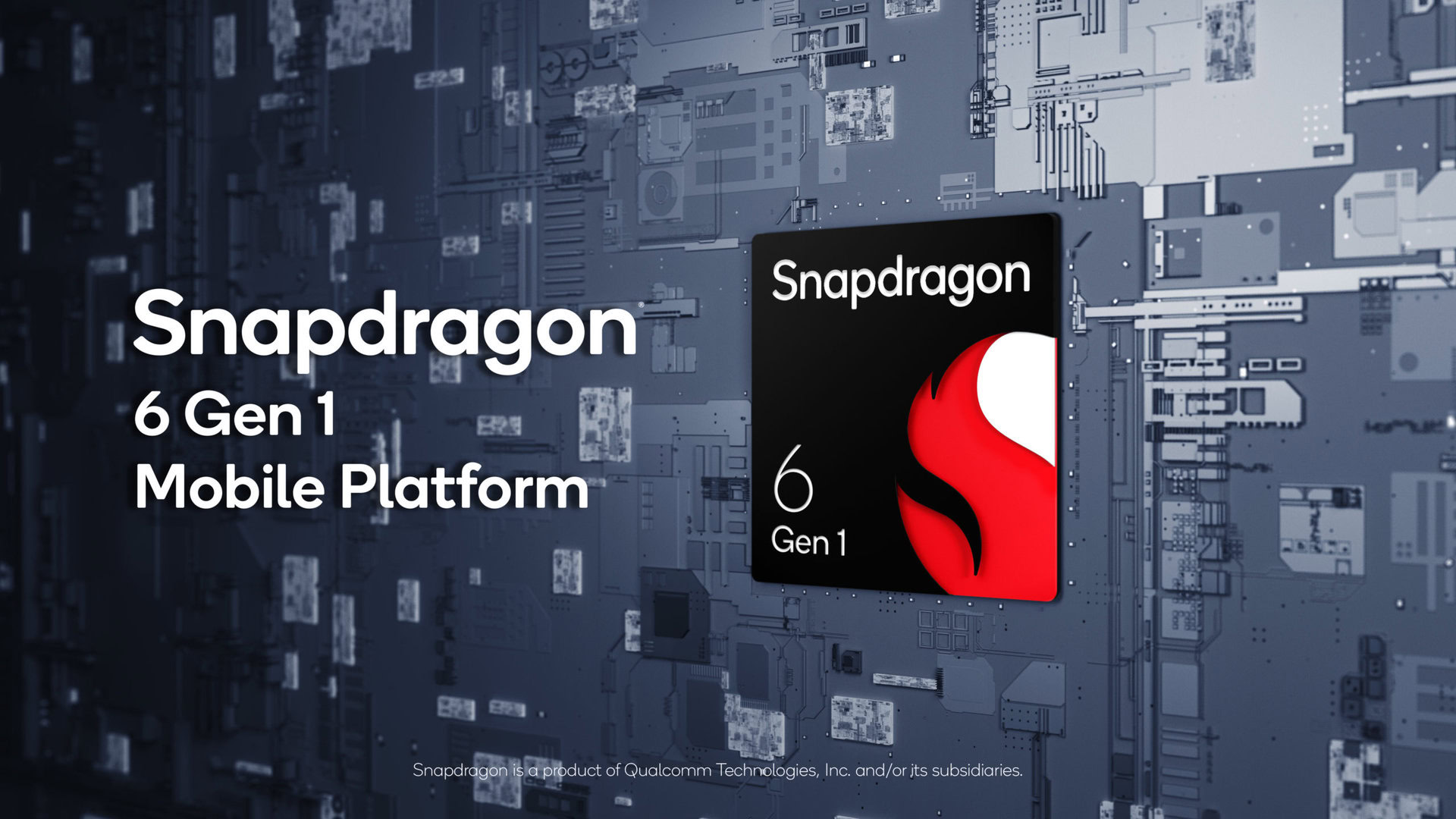Qualcomm’s Snapdragon processors are among the most ubiquitous SoCs in the Android smartphone space. Samsung uses Snapdragon for its Galaxy S line in various markets, but these chips also power the vast majority of flagship Android phones on the market. There’s a good chance that you’re reading this on a device using a Qualcomm Snapdragon processor right now.
Snapdragon chips aren’t just found in expensive flagship smartphones though. There’s a whole portfolio of processors built for handsets at various price points. Performance and features differ a fair bit between these models, so let’s break down how the company’s latest SoCs compare and what capabilities you should expect.
Snapdragon 8 series — Premium tier

Hadlee Simons / Android Authority
Looking for the very best Qualcomm smartphone processor family? That will be the Snapdragon 8 range. The latest and greatest flagship chip is the Snapdragon 8 Elite, launched in October 2024. It powers loads of next-generation high-end Android phones, including the OnePlus 13 and Xiaomi 15 series. It’s also expected to power the Galaxy S25 series.
For the first time since 2016, the Snapdragon 8 series offers a custom CPU, with the 8 Elite using in-house Oryon CPU cores. This octa-core CPU consists of two prime cores clocked at a screaming 4.32GHz and six “performance” cores clocked at 3.53GHz. Qualcomm has abandoned little cores for the first time, aping MediaTek and Apple’s chips. Either way, the chip company claims a massive 45% performance boost over the previous flagship processor while saying it’s up to 44% more efficient.
Other Snapdragon 8 Elite features include a 3nm manufacturing process, a redesigned Adreno 830 GPU that’s a claimed 40% faster and 40% more efficient, and AI silicon that’s apparently 45%. Qualcomm says the new chip also offers “unlimited” object/subject detection layers for videos and photos and a maximum of 320MP single-camera snapshot support.
| Snapdragon 8 Elite | Snapdragon 8 Gen 3 | Snapdragon 8s Gen 3 | |
|---|---|---|---|
|
CPU Config |
Snapdragon 8 Elite
2x 4.32GHz (Oryon) |
Snapdragon 8 Gen 3
1x 3.3GHz (Cortex-X4) |
Snapdragon 8s Gen 3
1x 3.19GHz (Cortex-X4) |
|
GPU |
Snapdragon 8 Elite
Adreno
|
Snapdragon 8 Gen 3
Adreno |
Snapdragon 8s Gen 3
Adreno |
|
DSP |
Snapdragon 8 Elite
Hexagon
|
Snapdragon 8 Gen 3
Hexagon |
Snapdragon 8s Gen 3
Hexagon |
|
RAM support |
Snapdragon 8 Elite
LPDDR5X |
Snapdragon 8 Gen 3
LPDDR5X |
Snapdragon 8s Gen 3
LPDDR5X |
|
Camera support |
Snapdragon 8 Elite
• 320MP single shot |
Snapdragon 8 Gen 3
• 200MP single shot |
Snapdragon 8s Gen 3
• 200MP single shot |
|
Video capture |
Snapdragon 8 Elite
8K @ 60fps (HDR) |
Snapdragon 8 Gen 3
8K @ 30fps (HDR) |
Snapdragon 8s Gen 3
4K UHD @ 60fps |
|
Charging |
Snapdragon 8 Elite
Quick Charge 5 |
Snapdragon 8 Gen 3
Quick Charge 5 |
Snapdragon 8s Gen 3
Quick Charge 5 |
|
4G/5G Modem |
Snapdragon 8 Elite
X80 LTE/5G (integrated) |
Snapdragon 8 Gen 3
X75 LTE/5G (integrated) |
Snapdragon 8s Gen 3
X70 LTE/5G (integrated) |
|
Other networking |
Snapdragon 8 Elite
Bluetooth 6.0 |
Snapdragon 8 Gen 3
Bluetooth 5.4 |
Snapdragon 8s Gen 3
Bluetooth 5.4 |
|
Process |
Snapdragon 8 Elite
TSMC 3nm |
Snapdragon 8 Gen 3
TSMC 4nm (N4P) |
Snapdragon 8s Gen 3
TSMC 4nm |
The previous flagship chip was the Snapdragon 8 Gen 3, which was announced in October 2023. It powers phones like the Galaxy S24 Ultra, OnePlus 12, and the Xiaomi 14 series. This is still a very powerful chip, offering a beefy CPU (in a 1+5+2 layout), generative AI capabilities (including text-to-image generation in under a second), faster graphics hardware, night mode video support, and video object eraser capabilities.
Qualcomm also launched the Snapdragon 8s Gen 3 in March 2024. This is meant to power affordable flagship smartphones rather than full-blown high-end phones like the 8 Gen 3 and 8 Elite. It features a powerful CPU (one Cortex-X4, four Cortex-A720, and three Cortex-A520) and a tweaked version of the older but still powerful Snapdragon 8 Gen 2 GPU. The chipset offers on-device generative AI support too, but Qualcomm acknowledged that AI performance was slower than the 8 Gen 3. The SoC also lacks 8K and super-slow motion video support as seen on the 8 Gen 2 and 8 Gen 3.
The Galaxy S24 series launched with the so-called Snapdragon 8 Gen 3 for Galaxy chipset in some models. It offers slightly higher CPU clock speeds compared to the vanilla chip. That may translate to negligibly better performance in some demanding tasks. We’re expecting a Snapdragon 8 Elite for Galaxy chip too if history is anything to go on.
Notable Snapdragon 8 series phones
Snapdragon 7 series — Bridging the gap

Qualcomm’s Snapdragon 7 series isn’t quite as straightforward as its flagship 8 series. This is due to the sheer number of them, as well as the older, lower-end chips crossing into Snapdragon 6 territory. The Snapdragon 7 series was originally conceived as an upper mid-range family of processors, but the Snapdragon 7 Plus Gen 3 blends high-end and mid-range features like few other processors.
The Snapdragon 7 Plus Gen 3 was announced in March 2024 and brings a 4nm design and a powerful, flagship-grade CPU. Qualcomm didn’t specify the GPU details bar saying it was 45% faster than the Snapdragon 7 Plus Gen 2. Otherwise, the 7 Plus Gen 3 also brings features like support for on-device generative AI features (e.g. Gemini Nano, image generation), 4K/60fps HDR video, and Wi-Fi 7. Just don’t expect AV1 support, 8K video recording, and the greatest modem.
The Snapdragon 7 Plus Gen 3 brings a flagship-grade CPU and generative AI support, but dials back the GPU, camera, and multimedia capabilities.
Prior to the Snapdragon 7 Plus Gen 3, we had the Snapdragon 7 Plus Gen 2. This was 2023’s best mid-range chip by Qualcomm, and it looked more like a Snapdragon 8 Plus Gen 1 processor than anything else. You’ve got the same TSMC 4nm design, a very similar CPU (one Cortex-X2, three Cortex-A710, four Cortex-A510), and what seems like a similarly powerful ISP. We do see some compromises though, such as a less impressive but still powerful GPU, the mid-tier Snapdragon X62 modem, and missing features like 8K recording. Unfortunately, only one phone launched with this chipset.
| Snapdragon 7 Plus Gen 3 | Snapdragon 7 Plus Gen 2 | Snapdragon 7 Gen 3 | Snapdragon 7s Gen 3 | Snapdragon 7s Gen 2 | |
|---|---|---|---|---|---|
|
CPU |
Snapdragon 7 Plus Gen 3
1x Cortex-X4 |
Snapdragon 7 Plus Gen 2
1x Cortex-X2 |
Snapdragon 7 Gen 3
1x Cortex-A715 |
Snapdragon 7s Gen 3
4x Cortex-A720 |
Snapdragon 7s Gen 2
4x Cortex-A78 |
|
GPU |
Snapdragon 7 Plus Gen 3
Adreno |
Snapdragon 7 Plus Gen 2
Adreno |
Snapdragon 7 Gen 3
Adreno |
Snapdragon 7s Gen 3
Adreno |
Snapdragon 7s Gen 2
Adreno |
|
DSP |
Snapdragon 7 Plus Gen 3
Hexagon |
Snapdragon 7 Plus Gen 2
Hexagon |
Snapdragon 7 Gen 3
Hexagon |
Snapdragon 7s Gen 3
Hexagon |
Snapdragon 7s Gen 2
Hexagon |
|
Modem |
Snapdragon 7 Plus Gen 3
Snapdragon X63 5G/LTE |
Snapdragon 7 Plus Gen 2
Snapdragon X62 5G/LTE |
Snapdragon 7 Gen 3
Snapdragon X63 5G/LTE |
Snapdragon 7s Gen 3
Unnamed Snapdragon 5G/LTE |
Snapdragon 7s Gen 2
Snapdragon X62 5G/LTE |
|
Cameras |
Snapdragon 7 Plus Gen 3
108MP single |
Snapdragon 7 Plus Gen 2
108MP single |
Snapdragon 7 Gen 3
64MP single |
Snapdragon 7s Gen 3
64MP single |
Snapdragon 7s Gen 2
48MP single |
|
Quick Charge |
Snapdragon 7 Plus Gen 3
5 |
Snapdragon 7 Plus Gen 2
5 |
Snapdragon 7 Gen 3
5 |
Snapdragon 7s Gen 3
4+ |
Snapdragon 7s Gen 2
4+ |
|
Bluetooth |
Snapdragon 7 Plus Gen 3
5.4 |
Snapdragon 7 Plus Gen 2
5.3 |
Snapdragon 7 Gen 3
5.4 |
Snapdragon 7s Gen 3
5.4 |
Snapdragon 7s Gen 2
5.2 |
|
Process |
Snapdragon 7 Plus Gen 3
4nm |
Snapdragon 7 Plus Gen 2
4nm |
Snapdragon 7 Gen 3
4nm |
Snapdragon 7s Gen 3
4nm |
Snapdragon 7s Gen 2
4nm |
Going down a rung we have the Snapdragon 7s Gen 3, announced in September 2024. This is a follow-up to the popular but middling Snapdragon 7s Gen 2 chip seen in phones like the Motorola Edge 50 Fusion, Redmi Note 13 Pro, and POCO X6. Thankfully, the new chip brings a powerful CPU that’s apparently up to 20% faster, consisting of four Cortex-A720 cores and four power-sipping Cortex-A520 cores. It also offers a 40% faster GPU, 30% better AI performance, and 12% better power savings. Unfortunately, you do miss out on 4K/60fps support, AV1 support, and a few other premium extras, but it’s a healthy upgrade anyway.
The two least capable recent Snapdragon 7 series chips are the Snapdragon 7 Gen 3 and 7s Gen 2, both being announced in late 2023. The former chip brings a good CPU for a mid-range chip (4x Cortex-A715 and 4x Cortex-A510), while the latter offers an aging CPU setup (4x Cortex-A78, 4x Cortex-A55) that should still suffice for gaming and other tasks. But don’t expect 4K/60fps support, Ultra HDR, generative AI smarts, or cutting-edge connectivity options.
Notable Snapdragon 7 series phones
Snapdragon 6 series — Value for money

Where the Snapdragon 7 series tries to bridge the gap between mid-range and flagship, the Snapdragon 6 series is mostly focused on the ~$300 and under segment. And the most notable processor in this family is the Snapdragon 6 Gen 3.
The Snapdragon 6 Gen 3 is an overclocked version of 2022’s Snapdragon 6 Gen 1 processor. Expect an aging but relatively powerful 2.4GHz CPU (4x Cortex-A78, 4x Cortex-A55), an Adreno 710 GPU, and the same connectivity standards (e.g. Bluetooth 5.2, Wi-Fi 6E). Qualcomm says the 6 Gen 3 offers a 10% CPU performance boost and a 30% better GPU over the Snapdragon 6 Gen 1.
For what it’s worth, the Snapdragon 6 Gen 1 has a claimed 40% CPU and 35% GPU boost over the stalwart Snapdragon 695. The 6 Gen 1 and 6 Gen 3 also feature a 4nm design, 200MP snapshot support, and 4K video capture. The latter feature was a rarity in this price segment until very recently.
| Qualcomm Snapdragon 6 Gen 3 | Qualcomm Snapdragon 6 Gen 1 | Qualcomm Snapdragon 6s Gen 3 | Qualcomm Snapdragon 6s 4G Gen 1 | |
|---|---|---|---|---|
|
CPU |
Qualcomm Snapdragon 6 Gen 3
4x Cortex-A78 @ 2.4GHz + 4x Cortex-A55 @ 1.8GHz |
Qualcomm Snapdragon 6 Gen 1
4x Cortex-A78 @ 2.2GHz + 4x Cortex-A55 @ 1.8GHz |
Qualcomm Snapdragon 6s Gen 3
2x Cortex-A78 @ 2.3GHz + 6x Cortex-A55 @ 2.0GHz |
Qualcomm Snapdragon 6s 4G Gen 1
4x Cortex-A73 @ 2.2GHz + 4x Cortex-A53 @ 1.8GHz |
|
GPU |
Qualcomm Snapdragon 6 Gen 3
Adreno 710 |
Qualcomm Snapdragon 6 Gen 1
Adreno 710 |
Qualcomm Snapdragon 6s Gen 3
Adreno |
Qualcomm Snapdragon 6s 4G Gen 1
Adreno 610 |
|
RAM |
Qualcomm Snapdragon 6 Gen 3
LPDDR5 |
Qualcomm Snapdragon 6 Gen 1
LPDDR5 |
Qualcomm Snapdragon 6s Gen 3
LPDDR4X |
Qualcomm Snapdragon 6s 4G Gen 1
LPDDR4X |
|
DSP |
Qualcomm Snapdragon 6 Gen 3
Hexagon |
Qualcomm Snapdragon 6 Gen 1
Hexagon |
Qualcomm Snapdragon 6s Gen 3
Hexagon |
Qualcomm Snapdragon 6s 4G Gen 1
UFS 2.2 |
|
Modem |
Qualcomm Snapdragon 6 Gen 3
Snapdragon X62 5G |
Qualcomm Snapdragon 6 Gen 1
Snapdragon X62 5G |
Qualcomm Snapdragon 6s Gen 3
Snapdragon X51 5G |
Qualcomm Snapdragon 6s 4G Gen 1
Snapdragon X51 5G |
|
Cameras |
Qualcomm Snapdragon 6 Gen 3
200MP photo capture; |
Qualcomm Snapdragon 6 Gen 1
200MP photo capture; |
Qualcomm Snapdragon 6s Gen 3
108MP photo capture; |
Qualcomm Snapdragon 6s 4G Gen 1
108MP photo capture; |
|
Quick Charge |
Qualcomm Snapdragon 6 Gen 3
4+ |
Qualcomm Snapdragon 6 Gen 1
4+ |
Qualcomm Snapdragon 6s Gen 3
4+ |
Qualcomm Snapdragon 6s 4G Gen 1
3 |
|
Bluetooth |
Qualcomm Snapdragon 6 Gen 3
5.2 |
Qualcomm Snapdragon 6 Gen 1
5.2 |
Qualcomm Snapdragon 6s Gen 3
5.2 |
Qualcomm Snapdragon 6s 4G Gen 1
5.1 |
|
Process |
Qualcomm Snapdragon 6 Gen 3
4nm |
Qualcomm Snapdragon 6 Gen 1
4nm |
Qualcomm Snapdragon 6s Gen 3
6nm |
Qualcomm Snapdragon 6s 4G Gen 1
11nm |
|
Video recording |
Qualcomm Snapdragon 6 Gen 3
4K@30fps |
Qualcomm Snapdragon 6 Gen 1
4K@30fps |
Qualcomm Snapdragon 6s Gen 3
1080p@60fps |
Qualcomm Snapdragon 6s 4G Gen 1
1080p@60fps |
Qualcomm also offers the Snapdragon 6s Gen 3, which is basically a rebranded version of the old Snapdragon 695 chip. Expect a middling octa-core CPU (2x Cortex-A78 and 6x Cortex-A55), an ancient Adreno 610 GPU, and Wi-Fi 5 instead of Wi-Fi 6 or higher. You also have to settle for 1080p/60fps video capture instead of 4K.
Finally, another recent Snapdragon 6 series entry is the Snapdragon 6s 4G Gen 1. But this is just a slightly improved version of the ancient Snapdragon 662 from 2020. Expect the same super-old CPU (4x Cortex-A73, 4x-Cortex-A53) with a 100MHz clock speed boost, an “enhanced” GPU, an old X11 LTE modem, and an obsolete 11nm manufacturing process. Don’t expect 4K video recording, slow-motion video support, or anything more than 48MP single-camera support.
Notable Snapdragon 6 series phones
Snapdragon 4 series — Entry-level

Now we come to the least capable Snapdragon series (aside from the shuttered/dormant Snapdragon 200 family), designed for cheap phones. But there’s good news here, as 2022’s Snapdragon 4 Gen 1 actually looks decent for a low-end chipset.
The Snapdragon 4 Gen 1 was announced in mid-2022 and offers a 6nm design, a solid but unspectacular CPU (2x Cortex-A78, 6x Cortex-A55), and a 10% faster GPU than the earlier Snapdragon 480. Otherwise, this SoC has quite a few things in common with the Snapdragon 695. We’ve got the same X51 5G modem, similar camera capabilities (no 4K recording here), 120Hz support at FHD+ display resolution, and Wi-Fi 5.
| Snapdragon 4 Gen 1 | Snapdragon 4 Gen 2 | Snapdragon 4s Gen 2 | |
|---|---|---|---|
|
CPU |
Snapdragon 4 Gen 1
2x Cortex-A78 |
Snapdragon 4 Gen 2
2x Cortex-A78 |
Snapdragon 4s Gen 2
2x Cortex-A78 |
|
GPU |
Snapdragon 4 Gen 1
Adreno |
Snapdragon 4 Gen 2
Adreno |
Snapdragon 4s Gen 2
Adreno |
|
DSP |
Snapdragon 4 Gen 1
Hexagon |
Snapdragon 4 Gen 2
Hexagon |
Snapdragon 4s Gen 2
Hexagon |
|
Modem |
Snapdragon 4 Gen 1
Snapdragon X51 5G |
Snapdragon 4 Gen 2
Snapdragon X61 5G |
Snapdragon 4s Gen 2
Snapdragon X61 5G |
|
Cameras |
Snapdragon 4 Gen 1
32MP single
25MP+13MP dual 13MP+13MP+13MP triple 108MP snapshot |
Snapdragon 4 Gen 2
32MP single |
Snapdragon 4s Gen 2
25MP single or 13MP+13MP dual
84MP snapshot |
|
Quick Charge |
Snapdragon 4 Gen 1
4+ |
Snapdragon 4 Gen 2
4+ |
Snapdragon 4s Gen 2
4+ |
|
Bluetooth |
Snapdragon 4 Gen 1
5.2 |
Snapdragon 4 Gen 2
5.1 |
Snapdragon 4s Gen 2
5.1 |
|
Process |
Snapdragon 4 Gen 1
6nm |
Snapdragon 4 Gen 2
4nm |
Snapdragon 4s Gen 2
4nm |
Otherwise, the Snapdragon 4 Gen 2 was announced in June 2023. It delivers a few upgrades over the Gen 1 chip like a 4nm design for greater efficiency, a more capable X61 5G modem, and a slightly faster CPU clock speed. Unfortunately, there are also a couple of downgrades compared to the Snapdragon 4 Gen 1, namely the somewhat inferior GPU and Bluetooth 5.1 instead of 5.2. No, there’s no 4K recording support here, either.
The latest Snapdragon 4 series processor is the Snapdragon 4s Gen 2, and it’s also the least capable of all recent releases in this lineup. The chip was announced in July 2024 and promises to bring gigabit 5G speeds to the $100 segment. This achievement is due to the inclusion of a Snapdragon X61 modem. Other noteworthy specs include a ho-hum CPU (2x Cortex-A78, 6x Cortex-A55), Bluetooth 5.1 and Wi-Fi 5 connectivity standards, and a 4nm manufacturing process for improved efficiency. But you should expect a few downgrades from the Snapdragon 4 Gen 1 and 2, such as a lower CPU clock speed, lower refresh rate support, and reduced camera resolution (84MP versus 108MP).
There’s clearly a theme with all three chips here. You’re getting small, efficient processors that can handle the basics just fine and they’ll support 5G without a problem. Just don’t expect to see Wi-Fi 6 or newer, advanced camera capabilities, and generative AI features.
Notable Snapdragon 4 series phones
That’s all for our Qualcomm Snapdragon SoC guide! Let us know your thoughts on the silicon giant’s portfolio in the comments. You can also check out our article charting the history of the Snapdragon 8 family.









